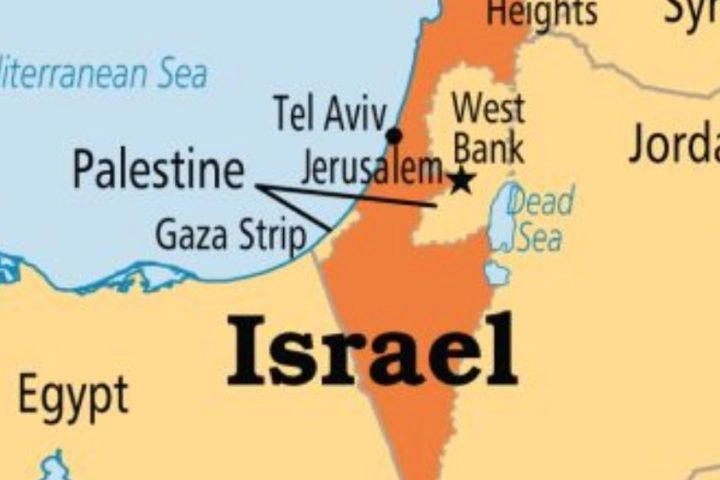India, an assertive rising power, has registered its voice on the ongoing Israel-Hamas conflict loudly – strong condemnation of terror perpetrated by Hamas and cessation of loss of lives in subsequent Israeli military action. However, the conflict, if escalated, may change the diplomatic matrix vis-à-vis the Middle East, and there lurks concerns for India, and the world.
India till now enjoys friendly ties with all Middle East countries, barring Qatar for the moment. Its relationship with Israel has been growing even before both the countries established consular links in 1992. Palestine considers India a pal, and India has been so till today, and fervently supports the two-state formula as the political solution to the Israeli-Palestine conflict, with the condition that East Jerusalem will be Palestinian capital.
India is an active part of the I2U2 grouping that has Israel, the UAE, and the US as other partners.
Similarly, India’s relations with Iran, Saudi Arabia and Egypt have been in directions that compete with that of China which forged several partnerships in the region but ever since the conflict ensued has been conspicuously absent from the scene.
India’s stance on Israel-Hamas conflict
Shahid Jamal Ansari, the director of Centre for West Asian Studies, Jamia Millia Islamia, said that India has taken a divergent position from its earlier stand and is tilted towards Israel after the ongoing crisis. However, it will entirely depend on the outcome of the crisis how India’s relations with Middle East countries like Iran, Saudi Arabia, UAE, Egypt and Israel will take shape. India doesn’t have enmity with any of these states and thus there is no possibility of future bitterness, but if the crisis continues to escalate and engulf the larger region, it will be difficult to predict any future scenario,” he said.
His colleague, Professor Hemayun Akhtar Nazmi, said that India’s relations with Israel should not come at the cost of Palestine. “India has carefully walked the diplomatic labyrinth in West Asia. While its relations with Israel have seen only improvement since their inception in 1992, India hasn’t abandoned the cause of Palestine either,” he said.
On being asked how the present crisis will impact the connectivity and trade links which were recently proposed and are expected to bear great outcome for India and the Middle East, he added that “connectivity projects like India-Middle East Economic Corridor and other trade ties will definitely be jolted as the current crisis is enormous and its influence potential is equally proportional.”
Perils and Prospects of Projects
Two key projects, besides other partnerships, that New Delhi has invested to be linked with the Middle East are the International North-South Transportation Corridor (INSTC) and newly-envisaged the new India-Middle East-Europe Economic Corridor (IMEC).
The INSTC have suffered setbacks because of the recent war in Nagorno-Karabakh. The defeat of Armenia, a key partner in the project, seemingly has threatened the territorial integrity of Syunik, a southern province and a key area for the INSTC. If this conflict widens to include Turkey and Iran, it will further spell doom for the project.
The IMEC has kindled hopes of new horizons, albeit with the possibility that it would take New Delhi somewhat away from Iran towards Arab countries. But, the sudden spurt of Israel-Hamas conflict has given birth to serious doubts about the geography of the project’s implementation, at least for an early one.
The horrific events that transpired in Israel and Gaza have completely changed the dynamics in the region as public opinion is growing shrill over daily casualties being reported. The Saudi-Israeli connection is at the centre of this reorganisation. The success of IMEC, which was hailed as a way to improve relations between the two nations, depended solely on their cooperation in regional development, at the very least. However, Saudi Arabia is not in a haste to resume normalisation negotiations, as seen by its interaction with Iran after the crisis and its silence on Hamas. This means that the forward momentum of the program will be stalled for the foreseeable future.
Israel-Iran Balance
India fundamentally does not see its connections with Iran and Israel in zero-sum terms; both are tools for achieving a semblance of regional order, and speaking with one does not entail that one cannot speak with the other. India’s partnerships in the region have been beset by tension regarding the purpose of India’s relationships with the Arab world and Israel. The I2U2, which was the precursor to the IMEC and has consisted of India, Israel, the US, and the UAE, was frequently perceived by Israel as an alliance driven by “fear of Iran,” even though India was simultaneously expanding its cooperation with Iran. In other words, India has ties to both Iran and Israel and does not feel the need to choose a side.




















